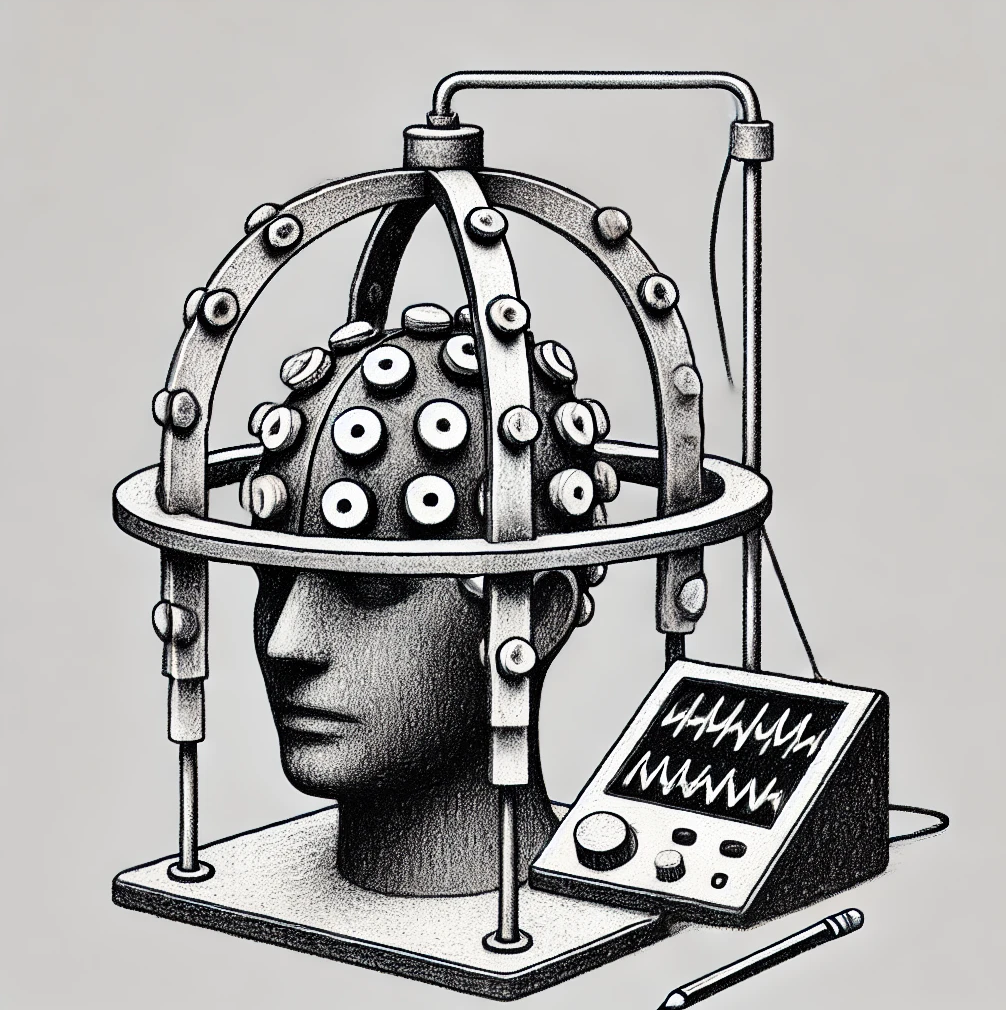Magnetoencephalography (MEG) is a technique used in cognitive neuroscience to measure the brain's magnetic activity. Unlike EEG, which detects electrical signals from neurons using scalp electrodes, MEG records the tiny magnetic fields generated by brain activity. These signals are captured using highly sensitive sensors called superconducting quantum interference devices (SQUIDs), housed in a specialized helmet. At Cophy, we also contribute to the development of an entirely new type of sensors based on optically pumped magnetometers technology.
MEG provides a more precise understanding of where brain activity occurs because magnetic fields are less distorted by the skull and scalp compared to electrical signals. This makes it particularly useful for studying how different brain regions interact during tasks like language processing, attention, and memory. While EEG is more affordable and widely used, MEG offers higher spatial accuracy, making it a powerful tool for mapping brain function with millisecond precision.
